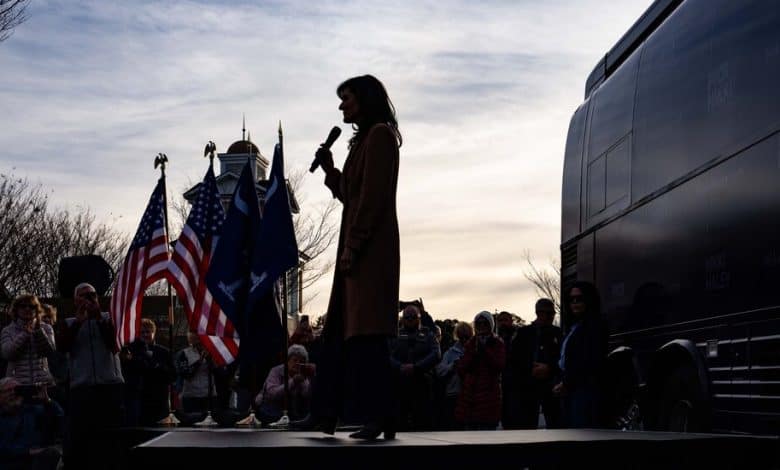Why Black Democrats Are Unlikely to Aid Haley in South Carolina

It appeared to be Nikki Haley’s most diverse audience yet.
More than two dozen people in a crowd of about 150, gathered this month at an outdoor space in Gilbert, S.C., just 30 minutes from the South Carolina capital, were Black. They seemed enthusiastic, sporting the hot pink feather boas and cowboy hats handed out by the campaign’s “Women for Nikki” coalition.
But less than a half-hour into the rally, the Black audience members revealed themselves as protesters, affiliated with a regional union. They interrupted her stump speech multiple times, chanting “What’s disgusting? Union busting” at Ms. Haley, a former governor of South Carolina and a self-proclaimed “union buster,” before being shouted down.
The scene captured an intractable challenge for Ms. Haley heading into South Carolina’s Republican primary on Feb. 24. She could benefit from an expanded coalition — one with moderates, independents and Democrats — as she fights former President Donald J. Trump, far and away the race’s front-runner. South Carolina’s open primary system allows voters to take part in one of either party’s primary contest, and at least one organization, Primary Pivot, has been working to sway Democrats who did not vote earlier this month to cast a ballot for Ms. Haley.
But Ms. Haley’s relationship with Black voters, a key Democratic faction in the state, has been long fraught. Her presidential bid has only increased their skepticism, casting further doubt on significant partisan crossover on Saturday.
“She cast her lot in a very conservative, most right wing Republican Party when she first ran for office. She made no outreach to the African American community,” said the Rev. Joseph A. Darby, the former first vice president of the South Carolina N.A.A.C.P. who helped lead the organization during Ms. Haley’s time as governor. “I never thought that she would be one who would reach out to the Black community in a meaningful way. And she has not disappointed me in that.”
In interviews, Black leaders and voters cited a number of reasons for their lack of support, including Ms. Haley’s years-ago refusal to expand Medicaid while in office and her support for a strict abortion ban. But it is perhaps her colorblind approach to issues of race and racism that appears to have turned off Black voters the most. Much like her previous campaigns in South Carolina, Ms. Haley has talked of the need to call out racism while downplaying the pervasiveness of racism in American institutions. She points to her own political rise to reject what she describes as a “national self-loathing.”